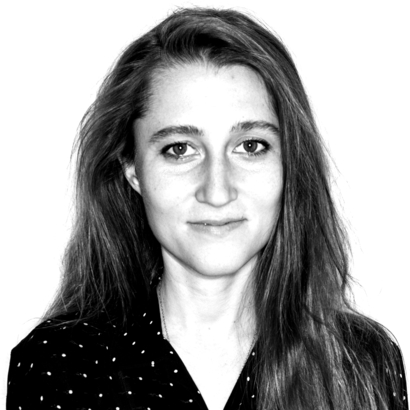Oreos are a thing most people agree you should have in moderation. But when asked how many Oreos per day they thought qualified as a “moderate” amount, the vast majority of subjects in a recent study answered with the exact number they already tended to eat. Be it cookies or our carbon footprint, this sort of bias—justifying one’s personal comfort zone—holds true. It’s also at the heart of Lily Cole’s Who Cares Wins, publishing next week from Rizzoli, a book less about the fact that climate change is a problem and more about the positive change we can effect if we recalibrate our day-to-day lives.

Cole, who was born in Devon and grew up in London, started modeling at 14. By 16, she was gracing covers of Vogue and working for Alexander McQueen, Chanel, and Louis Vuitton. A vegetarian since the age of 10, Cole was quick to grasp the environmental impact of the fashion industry—its voracious use of water, its endless production of unnecessary goods. “It seemed like a paradox for me to be ignoring that and then be working for charities, which I was doing,” says Cole. She traveled to Botswana, India, and other far-flung countries to learn about diamond mining and cotton farming, and the ways these practices could be more environmentally responsible. “I felt I was more interested in putting my philanthropic energies into businesses,” says Cole, “and thinking about how business could be a force for good.”
The book’s cover captures one of her first success stories: Cole is photographed in the Amazon jungle, where she’d traveled with the World Wildlife Fund. In the Amazon, as everywhere else, deforestation comes down to economics—land cleared of trees and primed for farming, cattle ranching, and logging is far more profitable. The initiative Cole helped spearhead offered a way for the local population to coexist with the forest. By helping to grow the demand for wild rubber, whose trees indigenous people in South and Central America had been tapping for millennia before the arrival of the Europeans, locals began to source the material to companies such as Veja, which uses it for the soles of their sneakers. In 2013, Cole worked with Vivienne Westwood on a Met Gala ensemble that used wild rubber from the Amazon.
The initiative Cole helped spearhead offered a way for locals to coexist with the forest.
Now 32, Cole spent the past four years writing her book. Its subjects include lab-grown meat—Cole traces its history back to Churchill’s 1931 article “Fifty Years Hence,” in which he wrote, “We shall escape the absurdity of growing a whole chicken in order to eat the breast or the wing, by growing these parts separately under a suitable medium”—as well as electric cars (Cole interviews Elon Musk at length) and the McCartneys. “My first awareness of the McCartney family was not through Paul but through his wife Linda,” Cole says, “whose vegetarian burgers and sausages were my ticket to participating in family barbecues.” Cole would intersect with Stella—Paul and Linda’s daughter and a pioneer in sustainable fashion—when she got into modeling. (The two later starred together in the movie adaptation of the British sitcom Absolutely Fabulous.) Cole also emphasizes the strong connection between gender equality and climate change. “The No. 1 thing we can do is empower women and provide family planning,” she says, underlining the impact that research suggests this will have—stabilizing birth rates, increasing agricultural yields, and potentially increasing environmental legislation—whilst acknowledging that growing consumption and inequality must be tackled first and foremost before conversations about population growth.

Even before lockdown, which she has spent with her five-year-old daughter in Sussex, Cole had been doing what she could to avoid air travel, opting when possible for the train or her own electric car. She likens the coronavirus to the frog-in-boiling-water allegory that’s often used to talk about climate change. For years the pot has been getting warmer, and the pandemic provides us with a jarring example of what can happen when warning signs go unheeded. Where the planet is concerned, there are things we can do today to turn down the heat.
And you don’t need to be a fanatic. As Cole says, “I’ve made peace with myself as an imperfect environmentalist, trying my best.”
Julia Vitale is the Senior Editor for AIR MAIL


